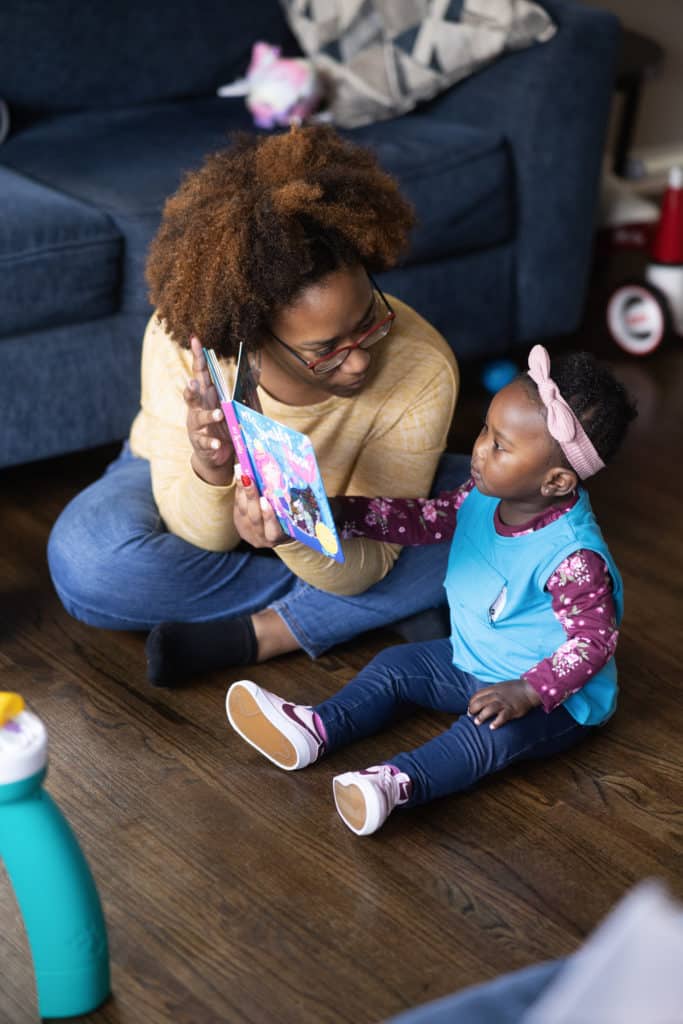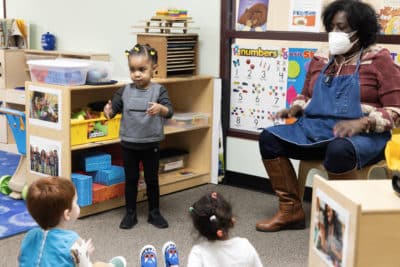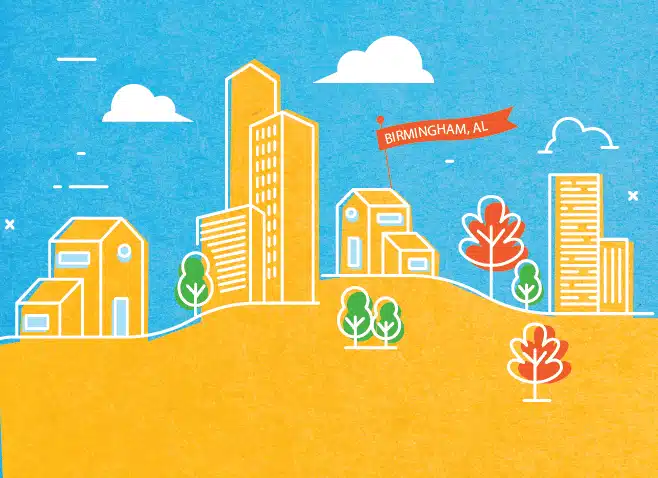[about]
“There’s a lot of mutual good that comes from partnering with people whose orientation is to ‘work toward yes.’”
That’s the kind of mindset to which Ruth Ann Moss, Executive Director of Birmingham Talks, attributes the initiative’s overwhelming early successes. Birmingham Talks has spent three years building a solid foundation for rapid organizational growth, primarily by hiring the right people and nurturing the right partnerships.
And, of course, they’ve served a lot of children, parents, caregivers, and early childhood educators along the way. Birmingham Talks has offered all three LENA programs, each driven by LENA’s “talk pedometer” technology:
- LENA Grow, a practice-based professional development program for early childhood educators designed to make every interaction count.
- LENA Start, a community program for parents and caregivers designed to build school readiness and strengthen families.
- LENA Home, an early language intervention that can be added to any existing home visiting program.
[quote]
Launched in 2019, Birmingham Talks reached around 150 children in their first year. In year three, they served almost four times that number. And by 2025, their goal is to see at least 2,000 children participate in their LENA programs annually.
“When we invest in children early, our entire community wins,” Moss said. “Building a foundation of early literacy in our city will lead to long-term prosperity and growth.”
With a population of just over 200,000 and an influx of 20- and 30-year-olds — Birmingham is seventh among the 150 largest U.S. metropolitan areas for percent increase in millennial residents — the city stands to benefit from this focus on adult-child interaction early in life for a long time to come.
Participating parents and early childhood educators are among the program’s biggest fans.
“Birmingham Talks gives children a foundation for kindergarten readiness,” said LaKeisha Ringo, who completed LENA Start with her toddler daughter. “It helps parents increase interactive talk and see that reading at an early age is fundamental to their child’s learning.”

Three things they’d do the same
Several good decisions early in the history of Birmingham Talks helped translate big-picture thinking into on-the-ground results. If they were starting from scratch again, Moss said, they’d do three things exactly the same:
- They’d again invest in marketing and design on the front end, as it impacted community perception of the program. (Indeed, bhmtalks.org is striking and effective, as is Birmingham Talks’ branding in general.)
- They’d again seek partnerships with a wide range of organizations, waiting patiently for the ones that fit. (A partnership with Sixth Avenue Baptist Church “completely changed the trajectory of LENA Start in Birmingham,” Moss said.)
- They’d again invest in staff. (“Part of the value proposition of LENA is that personalized coaching is powerful,” Moss said, “and it’s difficult to have effective personalized coaching if you don’t have a dedicated coach.”)

On that last point, Birmingham Talks has developed formulas around staffing that might be helpful to other partners. They’ve determined that a single LENA Start coordinator can reach at least 150 children annually and that one LENA Grow coordinator can reach 500. The organization has grown to have five full-time employees, with plans to expand to eight soon. And thanks to concerted efforts to educate the public on the importance of early interaction, demand for Birmingham Talks’ programs is high.
Two things they’d do differently
- They’d be better at holding partnerships with open hands and being willing to pivot as needed. (No matter how much sense a partnership makes on paper, Moss said, practicing “industry agnosticism” is key — the most valuable partners aren’t always the most visible.)
- They’d bring on more operational support sooner, recognizing that smooth business operations contribute to programmatic success. (“Human capital,” said Moss, “is the gasoline on the fire.”)
The why and the how of Birmingham Talks
Of course, none of the initiative’s impact could have come about without an across-the-board commitment to the why. Why do this work in the first place? Why focus on promoting early talk between adults and children?
For Moss, it’s about the city’s future just as it’s about the future of every individual child.
“In Birmingham right now, one in five kids in third grade is proficient in reading,” she said. “If we want to grow our economy, we have to change that. If we want to do right by our children, we have to change that.”
As they close out the three-year grant period that launched the initiative, they’re focused on a bright future. Birmingham Talks’ value proposition and that of LENA are essentially the same: A focus on something as simple as responsive interaction with infants, toddlers, and preschoolers can yield long-term benefits for everyone. With partnerships from the Alabama Department of Early Childhood Education, The Overton Project, and the City of Birmingham (the city has announced a $1 million investment), Birmingham Talks is poised to dramatically increase access to its programs and set up more and more children for success in school and beyond.
[webinar]



